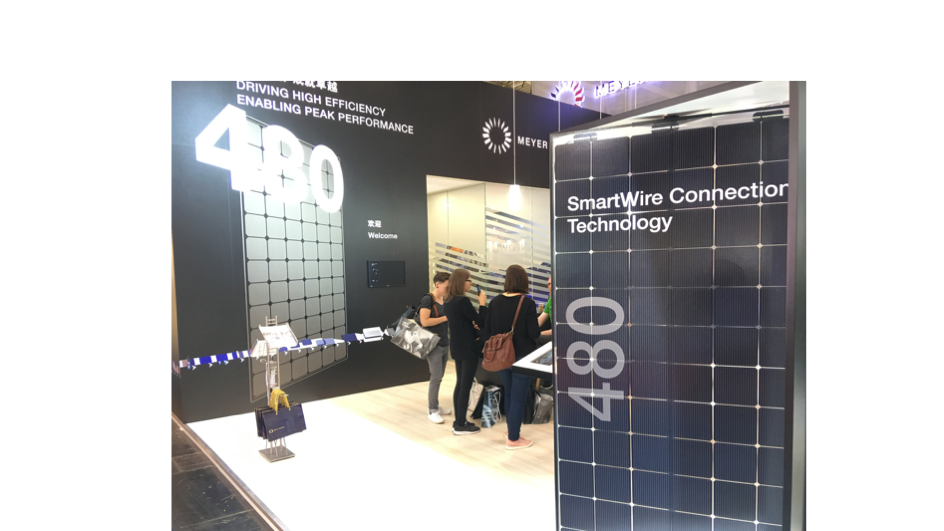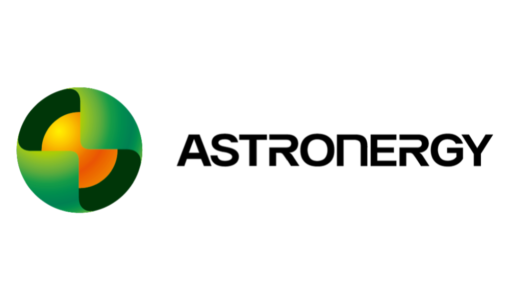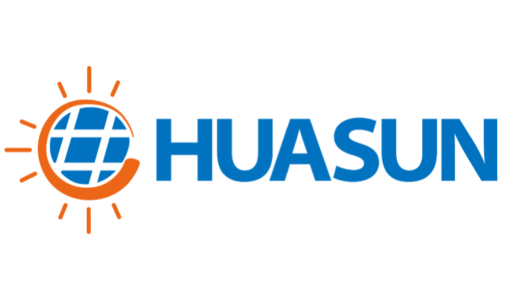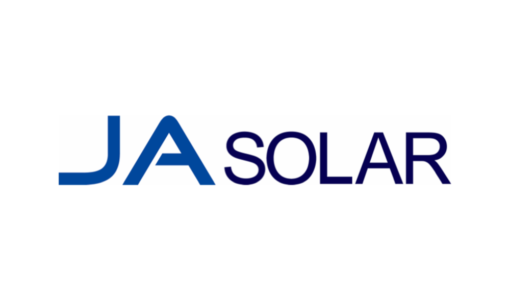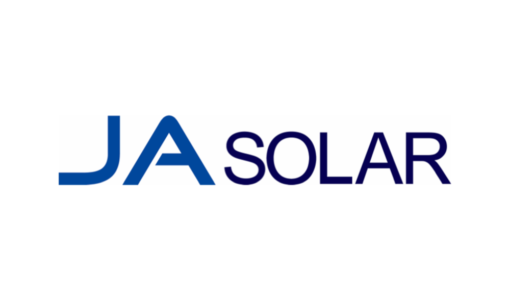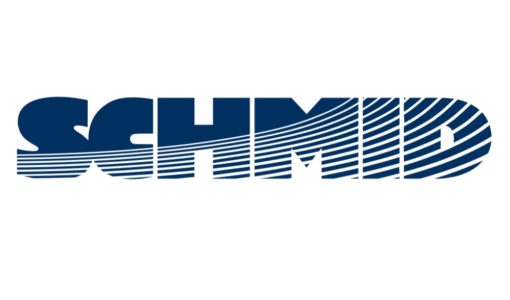- Meyer Burger is cooperation with CEA INES built a module with 410 W power rating
- The module uses 72 heterojunction cells with high efficiencies of 24.3%
- The monofacial module was made Meyer Burger’s proprietary SWCT technology for interconnection and reflective backsheet
- Meyer Burger showed at Intersolar Europe a 480 W bifacial HJT 72 cell panel
Leading production equipment provider Meyer Burger AG from Switzerland, in cooperation with French research institute CEA INES, has produced a monofacial solar module exceeding the 400 W level and a bifacial module getting close to 500 W.
This record 72 cell module with 410 W power rating was presented during its H1/2018 call with analysts on Aug. 16. The module is based on high efficiency heterojunction solar cells that have been produced using Meyer Burger’s production equipment installed at the CEA INES’ pilot line. The high-power module also features the company’s proprietary module production process, Smart Wire Connection Technology (SWCT), that employs thin wires instead of copper strips for the cell interconnection process.
Meyer Burger is the only production equipment supplier offering turnkey cell/module lines for heterojunction technology. CEA INES’ pilot line installed with Meyer Burger’s processing tools has attained 24.3% average efficiency for HJT solar cells, which were also integrated into the above record module.
For module making Meyer Burger has pioneered multi-busbar technology. The approach eliminates traditional busbars, so that it is possible to interconnect busbar-less cells (see TaiyangNews Market Survey on Cell Interconnection Equipment 2017). Instead, several thin wires are employed using SWCT, which also allows reducing cell finger width. SWCT, for which during the SNEC 2018 trade fair an updated version was released, enables considerably reduction silver pastes consumption at cell level. While the technology for this proprietary module technology from Meyer Burger is compatible with any cell technology (REC recently ordered a SWCT machine for its new silicon n-type modules), it is particularly suitable for heterojunction cells, which are sensitive to high temperatures. Using SWCT interconnection eliminates the need for high temperature soldering.
Unlike traditional silicon solar cells, heterojunction cells are by nature bifacial. The record module with 410 W power rating is a monofacial panel built with a reflective backsheet. The same module when adapted to bifacial configuration has reached 480 W output power, which Meyer Burger presented at Intersolar Europe 2018 in Munich.

